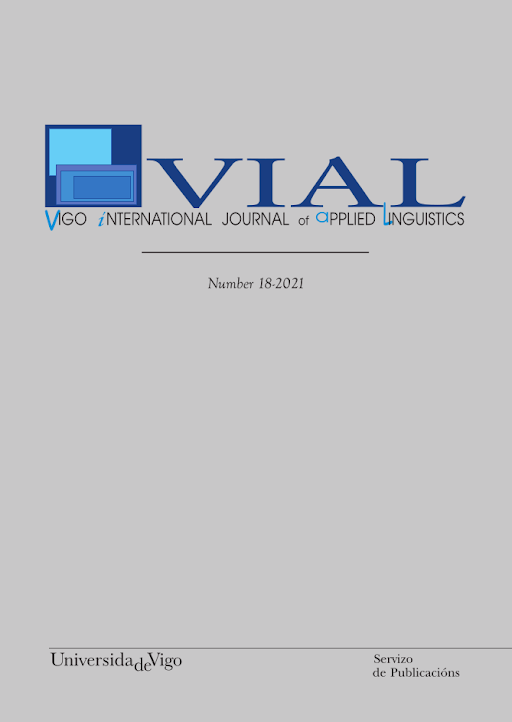Classroom enjoyment and anxiety among Saudi undergraduate EFL students: does gender matter?
DOI:
https://doi.org/10.35869/vial.v0i18.3363Palabras clave:
Classroom language anxiety, EFL learners, gender, foreign language enjoyment, positive psychologyResumo
The current study was motivated by recent interest in the effect of positive and negative emotions in the context of foreign language learning resulting from the rise of the positive psychology movement (Dewaele & MacIntyre, 2016; MacIntyre & Mercer, 2014). It examines the construct of foreign language enjoyment (FLE) and its relationship with foreign language classroom anxiety (FLCA) among a group of 487 English as a foreign language (EFL) students (340 females, 147 males) enrolled in public universities in Saudi Arabia. A measure of FLE based on Likert scale ratings of ten items (Dewaele & MacIntyre, 2014), and a measure of FLCA based on eight items extracted from the FLCAS (Horwitz et al., 1986) were used. Male and female students had the same levels of FLE and FLCA. Correlation analysis showed that the relationship between students’ FLE and FLCA was significantly negative. Qualitative analysis of the participants’ learning experiences revealed the causes of FLCA and FLE among Saudi EFL learners.
Descargas
Descargas
Publicada
Número
Sección
Licenza
Libros UVigo é o portal de publicación en acceso aberto das revistas da Universidade de Vigo. A posta a disposición e comunicación pública das obras no portal efectúase baixo licenzas Creative Commons (CC).
Para cuestións de responsabilidades, propiedade intelectual e protección de datos consulte o aviso legal da Universidade de Vigo.



